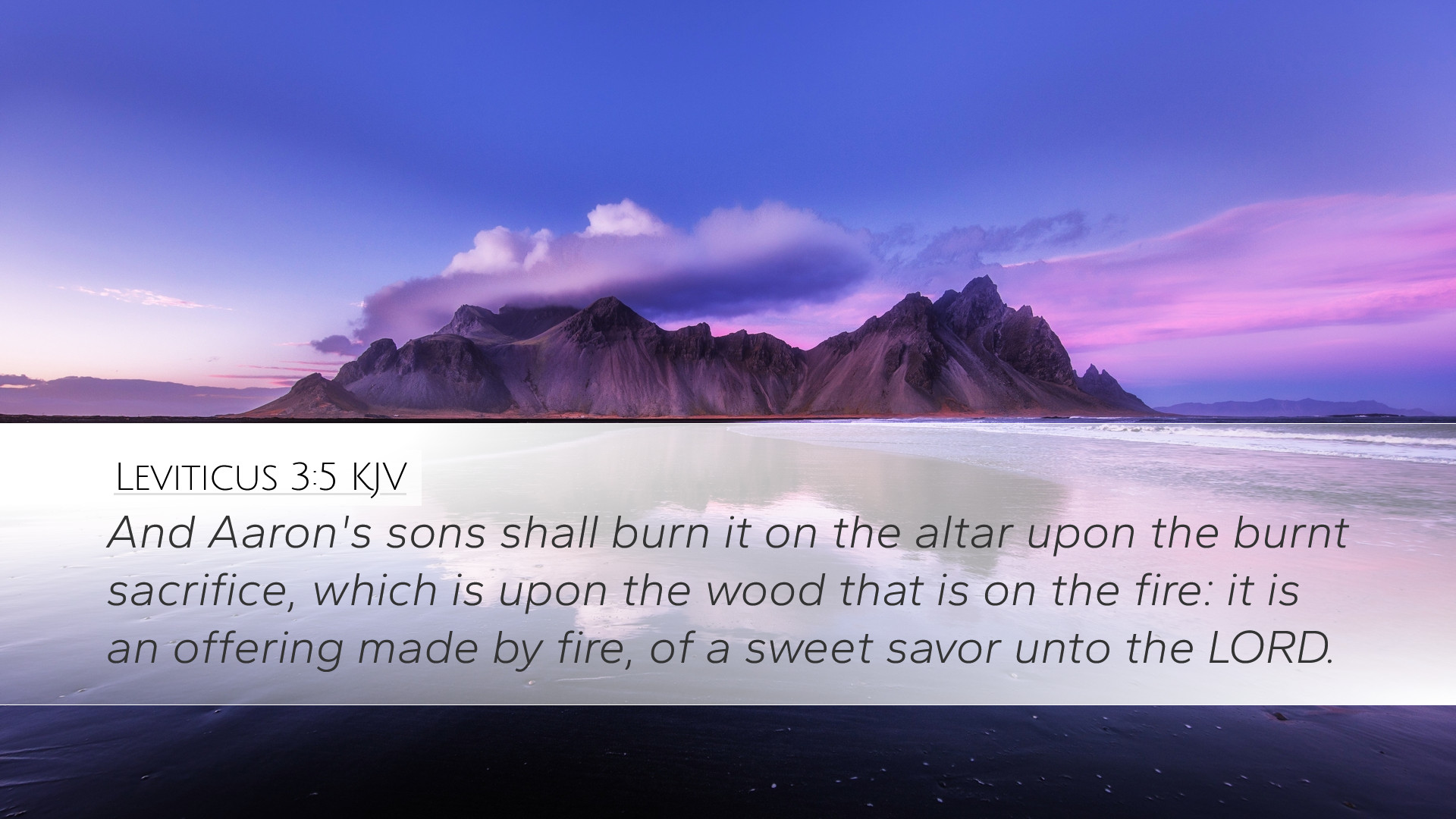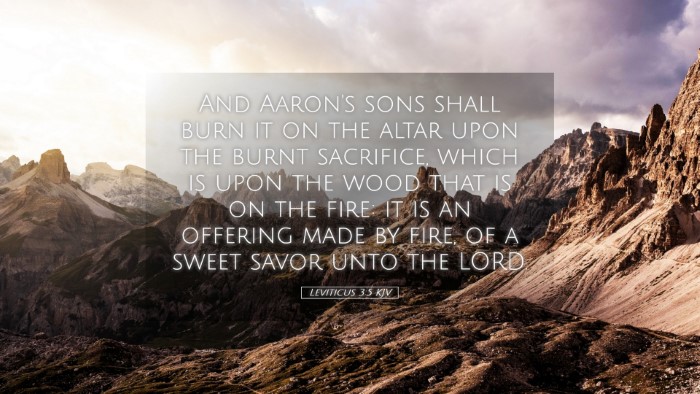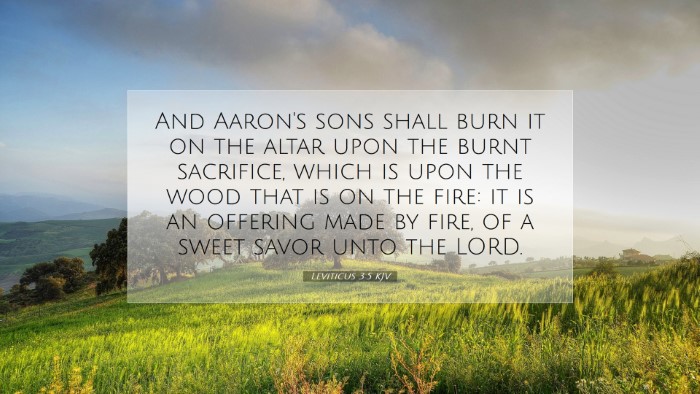Commentary on Leviticus 3:5
Leviticus 3:5 (ESV): "And Aaron's sons shall burn it on the altar on the burnt offering, which is on the wood, on the fire; it is a food offering with a pleasing aroma to the Lord."
Overview
The verse Leviticus 3:5 occurs within the context of the laws governing the peace offerings among the Israelites. This chapter in Leviticus outlines various aspects of offerings, emphasizing the significance of ritual purity and the proper method of sacrificial worship.
Meaning of Sacrifices
Matthew Henry's Commentary emphasizes the importance of sacrifices, highlighting that these offerings were not merely ceremonial but held deeper implications for the relationship between God and His people. The peace offering represented communion with God, a joyful expression of thanksgiving, and an acknowledgment of God’s blessings.
The Role of Aaron's Sons
According to Albert Barnes, the involvement of Aaron's sons signifies the priestly duties and the importance of mediation in worship. The priests play a crucial role in offering sacrifices to God, ensuring that they are done in accordance with divine instructions. This showcases the sacred duty of the priesthood in maintaining purity and facilitating worship.
Fire and Aroma
Adam Clarke points out that the act of burning the offering on the altar was not merely for consumption but was a significant ritual intended to create a pleasing aroma to the Lord. This imagery underscores the notion of God delighting in the offerings made by His people, fostering a sense of divine presence and favor.
Symbolism of the Peace Offering
- Communion: The peace offering allowed the worshiper to partake in the meal, symbolizing fellowship with God and among the community.
- Thanksgiving: It was a sacrifice of thanksgiving, expressing gratitude for God's provisions and blessings.
- Reconciliation: The offering functioned as a means of reconciliation, restoring the worshiper’s relationship with God.
Theological Implications
This verse reinforces a pattern of worship that transcends mere rituals, pointing to the relational aspect of offering to God. As reflected in Henry's commentary, the burnt offerings, which generate a pleasing aroma, are a precursor to understanding the ultimate sacrifice of Christ, who fulfills the requirements of the law through His atoning work.
Approach to Worship
The details in this verse guide contemporary worship styles. The meticulousness called for in sacrificial preparations speaks to the necessity of reverence and holiness in modern worship practices. The worshiper today is encouraged to approach God with intentionality and gratitude.
Conclusion
Leviticus 3:5 encapsulates theology that is deeply relevant for pastors, students, and scholars alike. It invites reflection on the nature of offerings, priesthood, divine pleasure, and the foundational themes of atonement and communion with God. By understanding these principles, believers can cultivate a richer, more meaningful relationship with God through their worship.


